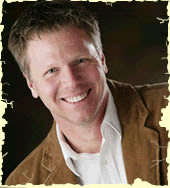Since one of our building goals is focused on vocabulary we spent yesterday afternoon's staff
inservice reviewing
Marzano's six steps for effective teaching of vocabulary. They are:
- Provide description, explanation, example
- Ask students to restate in their own words
- Ask students to construct a picture, symbol or graphic
- Engage students in activities that help them add to their knowledge
- Ask students to discuss terms with one another
- Games that allow them to play with terms
What does this look like in the shop? Well, for example, the other day I was giving the eighth graders a demonstration on how to glue together boards to make their table tops. After I had squeezed the glue across the edge of the board I said to them, "redistribute the bead of adhesive equitably." As expected, a couple of students quickly replied, "What did you say." So I translated my words into middle school language, "smear the glue on the edge of the board so there are no dry spots left." Then we joked around with the original statement a couple of times and I explained the phrase "bead of glue" and "adhesive".
The other day I called the class over for a different demonstration and said, "What I am about to show you will be
advantageous for you." Because of the teaching staff's focus on vocabulary this year the students are acutely aware, it seems, of words they do not use in their own daily vocabulary and they asked, "what is advantageous?" I gave them a quick multiple choice answer asking them to tell me which of my following statements correctly defined advantageous:
- advantageous is a disease a person gets from watching too many Super Bowl commercials. This meaning can be recognized by the "ad-" which refers to advertisement and the "-ageous" which distinguishes it as a disease.
- advantageous refers to something that is a benefit to you or brings you some advantage in some situation or process.
- advantageous is a corruption of an old, archaic English word for bandage.
After a few moments of discussion they unified on choice 2 but thought choice 1 was funny and had to consider choice 3 because they really didn't understand what that one meant.
I agree with
Marzano, of course, even though he was not presented as the god of vocab in yesterday's
inservice but simply as a voice of one who has carefully researched and made some intelligent conclusions. (And, made a lot of money selling his book and doing seminars.) But, I would add my own
un-researched and less-intelligent opinion concerning teaching vocabulary:
- Sometimes we created artificial learning situations expending 110% of our effort for about 5% results. I do not like artificial learning situations because we live in a real world and habitually ignore that it is constantly teaching us.
- Most (or, 95% - an undocumented number) of my personal learning of vocab seems to have come from hearing conversations, reading, or listening to other people talk. I heard or hear words and begin to use them.
- Concerning preparing students for standardized testing one of the greatest means of decoding a word is to understand etymology. To understand English a little bit of insight and experience with Latin and Greek provides a great basis for student empowerment in decoding words. Here 5% of knowledge is going to provide 100% improvement in vocab ability (again, these are undocumented, estimates from my own imagination, but the point is: a little knowledge of Greek and Latin will provide greater insight into vocab. This would be very beneficial on standardized testing.)
- When I go to the men's room in an Italian restaurant (Macaroni Grill, for example) they are not playing music but instead of reading from an Italian-English dictionary . . . should we be playing the vocabulary words anticipated on the standardized tests over the intercom and over the speakers on the school buses?
I will be addressing the above points in my new book "A Shop Teacher's Guide to Improving Vocab". The book will be just a little longer than this blog because it will include an index. Don't miss my coming seminars where you can buy a signed copy of this book!
Mr.
Wiemershttp://mrwiemersshop.com












